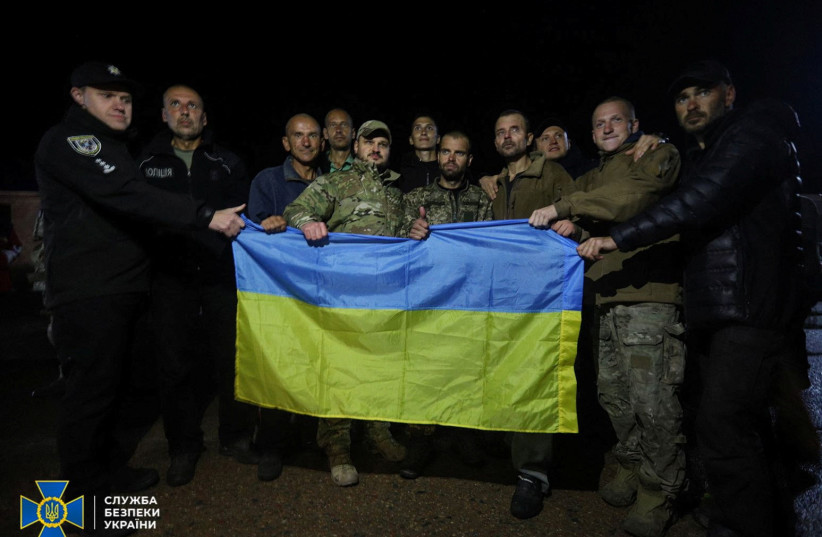In an extraordinary turn of events, Saudi Arabia’s Crown Prince Mohammed bin Salman was able to help mediate the release of 10 detainees captured by Russian forces in the Ukraine war.
At the same time, Kyiv and Moscow exchanged more than 200 prisoners of war after Turkey helped mediate the trade. Turkey and Saudi Arabia have only recently patched up ties. They apparently have good relations with Ukraine and Russia, enabling this turn of events.
Turkey’s state media TRT said the Turkish meditation helped get some 200 Ukrainians released “as a result of mediation and diplomatic traffic conducted with Russia’s and Ukraine’s presidents, Turkish President Recep Tayyip Erdogan announced.”
The fighters released to Turkey appear to be mostly from among those who fought for months resisting in the Azovstal Iron and Steel Works in Mariupol. These famed fighters are heroes in Ukraine.
According to reports, those released “include Lt.-Col. Denys Prokopenko, commander of the Azov Battalion that did much of the fighting, and his deputy, Svyatoslav Palamar. Also freed was Serhiy Volynsky, the commander of the 36th Marine Brigade.”

Meanwhile, Saudi Arabia has helped with the release and transfer of foreign volunteer fighters who served in the same area and were captured by Russians and Russian-backed separatists.
“The Kingdom’s Ministry of Foreign Affairs said in a statement the move was based on the support of Prince Mohammed and in continuation of his efforts to adopt humanitarian initiatives toward the Russian-Ukrainian crisis,” Arab News reported.
“The Saudi crown prince, who has continuously worked with global countries to mitigate the repercussions of the war, held successful mediations in releasing prisoners from Morocco, the US, UK, Sweden and Croatia, where their release was part of a prisoner exchange between Russia and Ukraine.
“Saudi FM Prince Faisal bin Farhan said that the Crown Prince’s successful mediation efforts demonstrate the kingdom’s commitment to global peace and security, and its belief in the importance of dialogue.” Indeed, for Saudi Arabia this is an important step in trying to showcase that the kingdom has changed.
Who were the released prisoners?
According to the BBC, among those released are Aiden Aslin, John Harding and Shaun Pinner, “who were captured while fighting with Ukraine forces.” These volunteers had faced death penalties by sham courts created by Russian-backed separatists.
They had also fought ISIS in Syria alongside Kurdish forces prior to going to Ukraine. Harding was profiled in a 2018 article in the BBC, describing his life as a soldier and volunteer.
Turkey, which opposes the YPG and the Syrian Democratic Forces, of which it is a part in Syria, would not have wanted to work to get these men released, so it makes sense that they were transferred to Saudi Arabia.
The role that Turkey and Saudi Arabia have played overall in helping get people released illustrates their potentially important global role.
